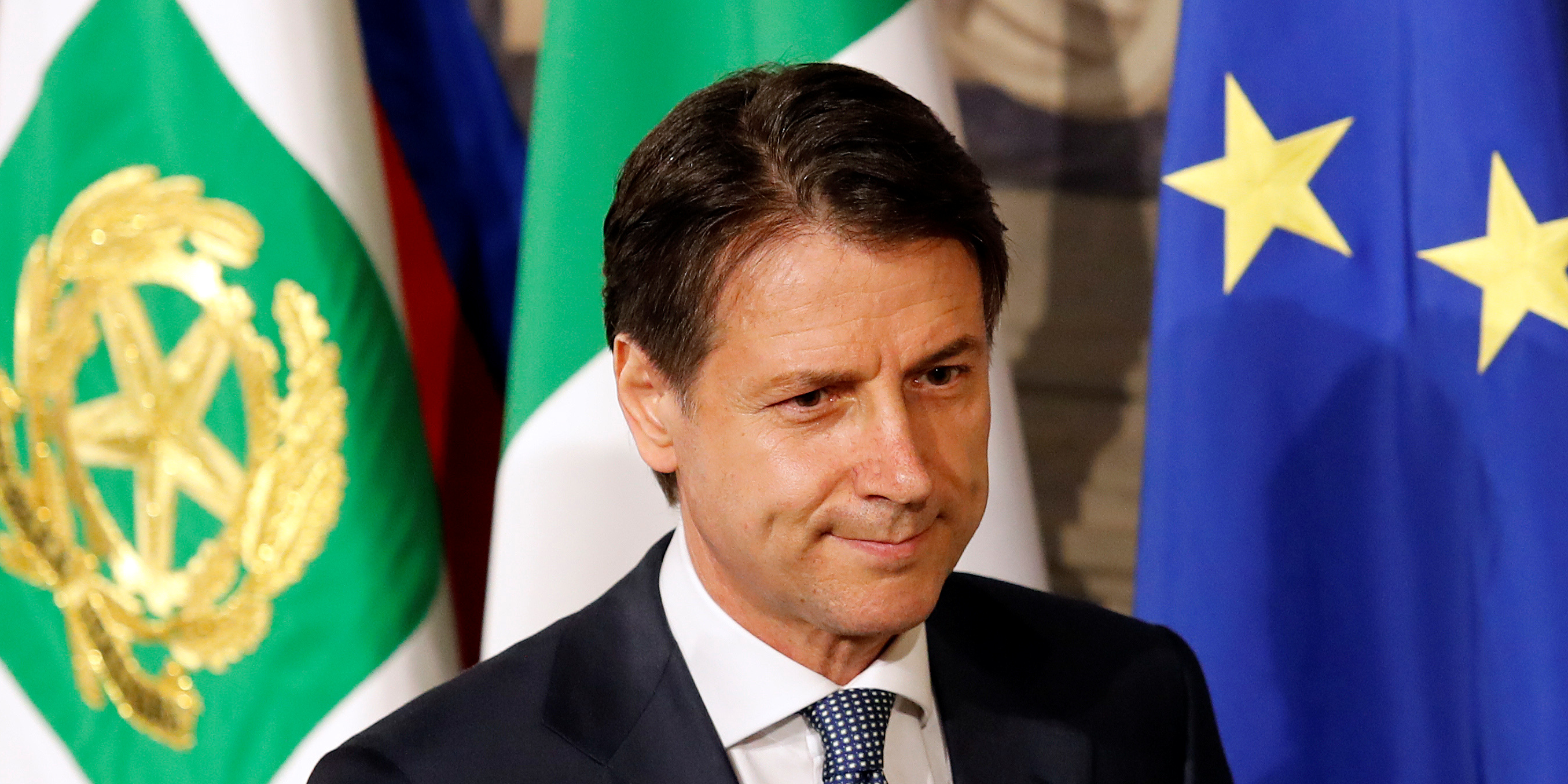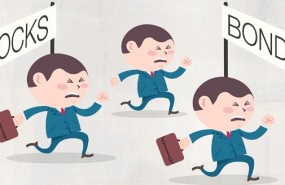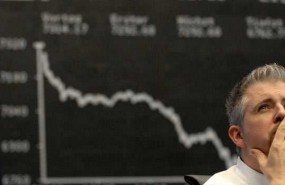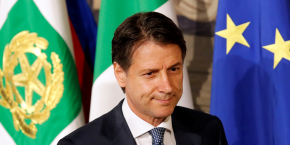The Ibex 35 closes at this month's low due to political uncertainty
The selective has fallen 0.63% to 9,764 points
- Banks are again the worst values of the Ibex
- Oil influences the behavior of Técnicas Reunidas, which drops over 4%

The political situations in Italy and Spain have marked the first day of the week, just as they did on Friday of last week. The Ibex 35 has fallen 0.63% to 9,764 points, this month's low (on April 12, it closed at 9,747 points). Banks have been the most affected values of the session.
IBEX 35
11.435,700
-
-0,28%-31,60
- Max: 11.474,90
- Min: 11.399,10
- Volume: -
- MM 200 : 11.294,32
However, the red lantern has been Técnicas Reunidas, which has fallen by 4.1% to 25.4 euros, burdened by oil prices that dropped 1.5%. Repsol has also been affected by the drop in crude oil and it has fallen 0.5% to 15.68 euros. Siemens Gamesa, meanwhile, was the second worst performer after dropping 1.9%.
All the banks listed on the Ibex 35, except Banco Sabadell (+ 1.04%), closed with significant falls. Bankinter was the one that recorded the worst performance, 1.62%. However, the two majors of the selective, Banco Santander and BBVA, have also fallen sharply. In the case of the entity chaired by Ana Botín, the fall was 1.4%, while BBVA has left 0.63%.
Telefónica has also fallen close to 1%. In addition, Renta 4 has reduced its target price by 11% to 10.1 euros from the previous 11.34 euros. Iberdrola, the fifth largest company of the Ibex, has fallen 0.73%. In fact, among the heavyweights, only Inditex has been able to close in green, with an increase of 0.14%, which brings it closer to 30 euros.
Regarding the increases, Melia was the value with the best performance, after rising 1.54%; followed by Amadeus, with an advance of 1.34%. We must also talk about Mediaset, which has risen by 0.73% driven by advertising optimism. Something that has also benefited Atresmedia in the main board, which has risen 0.57%. A report by Zenith Vigía de Mayo acknowledges that "advertising investments have reduced optimism," but they are confident that "there will be a reaction in the remainder of the year that will end up producing growth in investments."
POLITICAL UNCERTAINTY
This weekend the situation has worsened even more in Italy. The candidate chosen by the '5 Star Movement' and the 'Northern League', Guiseppe Conte, for the post of prime minister in Italy - and ratified by the president of the republic, Sergio Mattarella - has resigned after the veto of the latter to support the candidate Minister of Economy, Eurosceptic Paolo Savona.
It seemed complicated that Mattarella would give the go-ahead to Savona, who has stated on more than one occasion that he does not believe in the euro and that he wants Italy out of it. And he has not given it to him. Now, Mattarella has commissioned the former IMF official (International Monetary Fund), Carlo Cottarelli, to form a technocratic government with an eye on new elections.
The crisis in Spain is also relevant for the markets today. The vote of no confidence that the PSOE has presented against Mariano Rajoy, and that dragged on Friday all the values of the Ibex down, starting with the banks, has created a lot of tension. It has been revealed on Monday that it will be discussed this Thursday and Friday. Two difficult situations that reflect the complicated reality of two fundamental countries for the European Union (EU), especially in Italy that is the third economic power within it.
OTHER MARKETS
The situation of political crisis is also having an impact on fixed income. The Spanish risk premium has risen to 118 points and the Italian to 233. "These spreads, if they increase, will provoke a reaction of coverage in the markets that will cause the operators to start selling euros and then the party will begin. depreciation of the euro, "warns Ramón Morell, an expert at ETX Capital The euro has marked six-and-a-half month lows this Monday, down 0.16% to 1.1626 dollars.
Regarding the rest of European stocks, this Monday the UK stock market has not opened and neither has Wall Street, because it is a holiday in the USA for Memorial Day. In Europe, the Italian FTSE MIB has fallen more than 3%. The CAC 40 in France has been left 0.56% and the DAX 30 in Germany 0.4%.
Oil trades with steep drops. In the case of Brent, the benchmark in Europe, the drop is 1.36% to 75.4 dollars. For its part, the barrel of West Texas, a benchmark in the US, falls about 2% to 66.5 dollars. These falls occur after Saudi Arabia and Russia, the world's largest producers together with the United States, announced that they expect to increase their production to compensate for the loss of Iran's leading role after the sanctions.
TECHNICAL ANALYSIS
José María Rodríguez, technical analyst at Bolsamanía, points out that despite the falls of Monday, the day's minimum has not been below the minimums of last week (9,722). Although in view of the daily chart it is easy to understand the reason why we talk about the 9,700 points as support. This level corresponds to an adjustment / retreat of 61.8% of the whole rise from the minimums at the end of March. "Or, in other words, up to that point it can be said that the correction suffered in recent weeks fits within the normal parameters, underneath it would complicate the scenario and we would not even rule out returning to the annual minimums at 9,330 points, stopping in the support that presents in the bullish hole of the 9,510 points (session of April 5), "explains the analyst.
Thus, he adds that "we will pay attention to BBVA, which, unlike Santander, has not perforated the support it presents at the annual minimums, and we know from experience that it is used to performing very well as an advanced title of the Ibex". Thus, BBVA would be trying to hold onto the support of 6.06 euros. While Santander pierced the support, at 5.05 euros.


